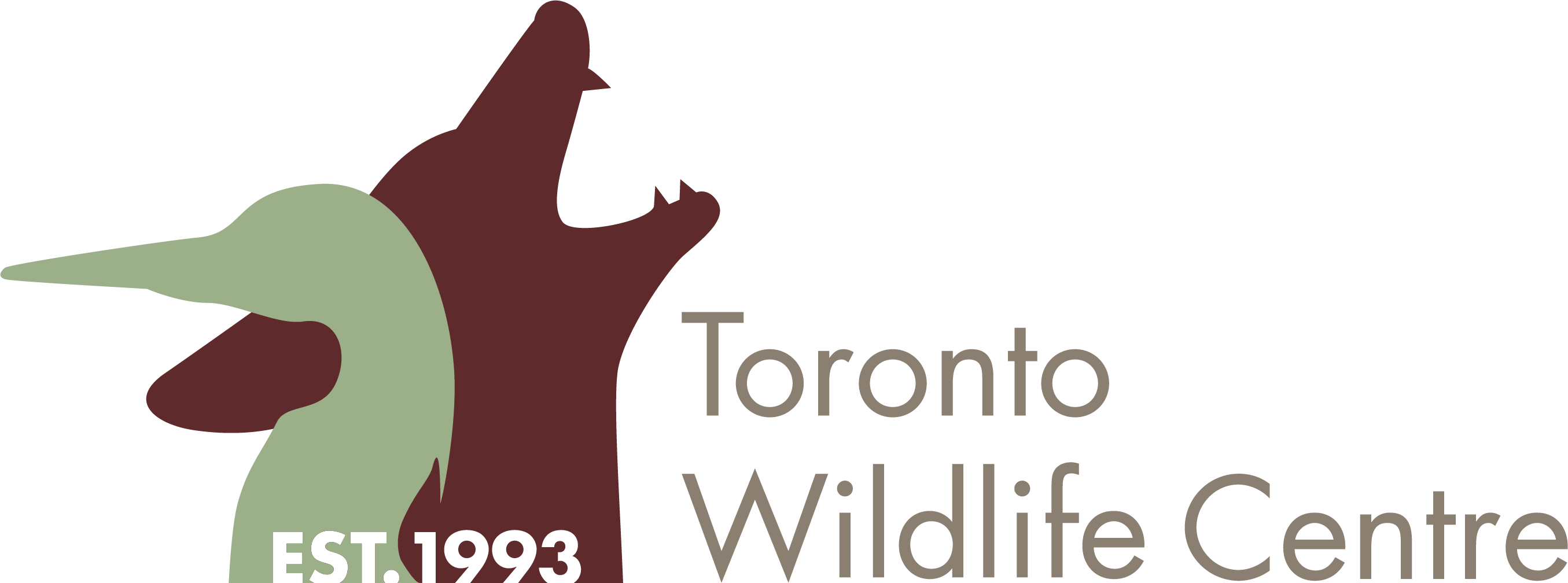First contact a wildlife rehabilitator . While you are waiting to hear back, the following instructions will keep the animal safe and comfortable.
What to do while you wait
A dark, quiet place
Keep the animal in a dark, quiet place indoors, in an enclosed or covered container. For most species, a cardboard box is perfect. If your home is small, a closet or a bathroom is an excellent spot. A basement, heated garage, or spare bedroom will also work.
Keep children, pets, and people away from the room the animal is in. Remember that it is injured and frightened, and we want to keep its stress down as much as possible. Unlike our pets, wild animals are not comforted by people talking to them, petting them, or looking at them.
A heat source
Baby birds rely on their mother or father to keep them warm. Keeping them warm will reduce stress on their system, once their body doesn’t have to fight to keep its temperature up. Some examples of an appropriate heat source:
- a clean sock filled with dry, uncooked rice, and microwaved for one minute
- a plastic bottle from the recycling bin filled with hot tap water
- an electric heating pad set to “LOW” and placed under half of the box.
Re-heat water bottles and rice socks as necessary. Once they have something warm to snuggle up to, most baby will go right to sleep.
No food or water
This is a tough one, because our first instinct is often to try to give food or water to an animal we’ve found. Until you’ve spoke to a wildlife rehabilitator, there are some really good reasons not to give the animal food or water.
Why shouldn’t I feed it?
- If the animal is dehydrated, starving, or suffering from trauma, its body may not be strong enough to digest food. Trying to feed it can cause bloating, shock, or death.
- Trying to force-feed food or water can accidentally end up with the liquid in the animal’s lungs. This can cause pneumonia, and death.
- If you feed the wrong food to the wrong species, it can cause serious digestive problems.
- Once you get the animal to a wildlife rehabilitator, they will need to assess its condition and maybe run some medical tests. These are a lot easier to do if the animal hasn’t been eating. It’s just like when your doctor or veterinarian asks you or your pet not to eat the night before an appointment.
Once you’ve spoken to a wildlife rehabilitator, if they ask you to give the animal some food please follow their advice.
Why shouldn’t I give it water?
- If the animal is injured and having trouble standing, or if it panics trying to get out, it could fall into the water dish. This can cause hypothermia, or even drowning.
- Trying to force-feed water can accidentally end up with the liquid in the animal’s lungs. This can cause pneumonia, and death.
- Once you get the animal to a wildlife rehabilitator, they will need to assess its condition and maybe run some medical tests. These are a lot easier to do if the animal hasn’t been drinking. It’s just like when your doctor or veterinarian asks you or your pet not to eat or drink the night before an appointment.
Once you’ve spoken to a wildlife rehabilitator, if they ask you to give the animal some water please follow their advice.

